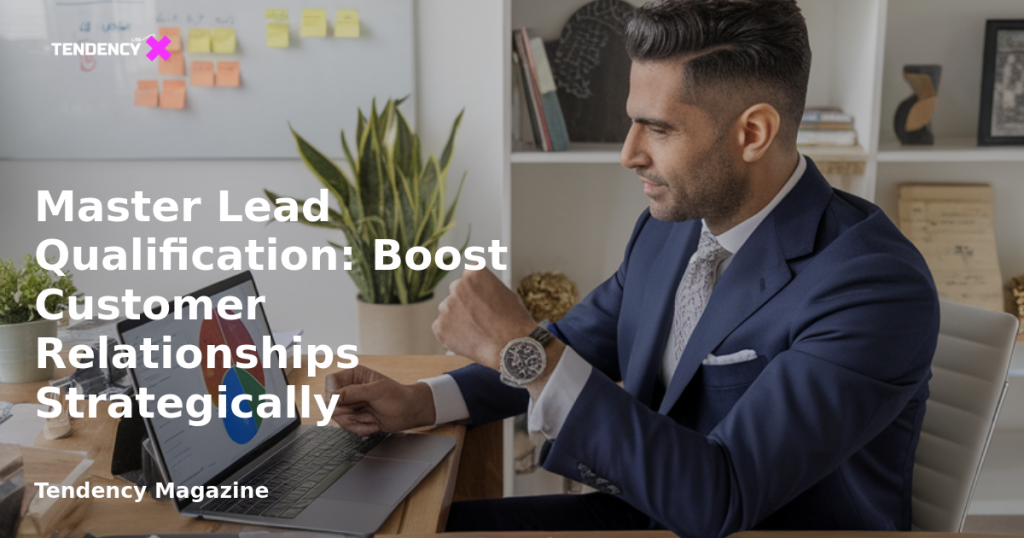Master Lead Qualification: Boost Customer Relationships Strategically

What is Lead Qualification?
Lead qualification is the process of evaluating the potential value, interest, and purchasing intent of prospective customers, also known as leads. By using a set of established criteria, your marketing and sales teams can make informed decisions about where to focus their efforts, ensuring that resources are invested in building strong customer relationships.
Depending on your business model, you might focus on different types of qualified leads. Here are a few that eCommerce companies often consider:
– Marketing-Qualified Leads (MQLs): These leads have been identified through marketing efforts as potential matches for your company, although they may not have had direct experience with your brand.
– Sales-Qualified Leads (SQLs): These leads have progressed further through the marketing funnel, either by making a conversion or engaging with your team. In B2B settings, SQLs are typically passed to the sales team for further qualification.
– Product-Qualified Leads (PQLs): These leads have some familiarity with your products, often through promotions or free trials.
Lead Qualification Frameworks
While there isn’t a universal approach to lead qualification, several well-established frameworks can help tailor your strategy. Here are three popular ones:
BANT
BANT stands for Budget, Authority, Need, and Timing. This framework acts as a checklist to evaluate leads:
– Budget: Does the lead have the financial resources to purchase your product?
– Authority: Is the lead in a position to make purchasing decisions?
– Need: Does your product meet a specific need for the lead?
– Timing: Is the lead ready to make a purchase soon?
CHAMP
CHAMP focuses on the potential customer’s concerns and challenges before addressing cost and resources:
– Challenge: What problems is the lead trying to solve?
– Authority: Does the lead have decision-making power?
– Money: Are the necessary resources available for purchase?
– Prioritization: How urgent is the need for a solution?
MEDDIC
Ideal for B2B brands with complex sales processes, MEDDIC includes:
– Metrics: What metrics are used to measure success?
– Economic Buyer: Who in the company should learn about your product?
– Decision Criteria: What criteria are used for purchasing decisions?
– Decision Process: What steps are followed in procurement?
– Identify Pain Points: What challenges can your product solve?
– Champion: Who will advocate for your brand within the company?
How to Use the Lead Qualification Process
To effectively qualify leads, follow these steps:
1. Define Your Ideal Customer Profile
Creating an Ideal Customer Profile (ICP) helps build your lead qualification strategy. An ICP for an eCommerce business might include:
– Industry
– Professional role
– Income or budget
– Geographic location
– Priorities and challenges
– Customer lifetime value
2. Gather Data
With an ICP in place, begin collecting data to evaluate leads. Lead scoring, or numerically evaluating leads based on ICP criteria, can help identify the best matches for engagement. Building relationships should guide data collection, not the other way around.
3. Follow Sales-Ready Leads
Not all leads are ready for a long-term relationship. Sorting leads by sales-readiness helps prioritize engagement and resource allocation.
4. Evaluate Your Approach
Lead qualification is an ongoing process. Establish metrics to evaluate progress and improve your strategy. Key metrics include:
– Win Rate: The percentage of qualified leads that convert to customers.
– Lead Qualification Rate: The rate of leads that meet your qualification criteria.
– Lead Conversion Rate: The proportion of leads that convert through the sales process.
Lead Qualification FAQ
What qualifies as a good lead?
A qualified lead shows initial interest in your brand and has the right combination of needs and resources to make a purchase.
What does a lead qualification specialist do?
A lead qualification specialist engages with potential customers to assess their needs and compatibility with your brand. In B2B settings, they pass qualified leads to sales teams for further nurturing.
What is the skill of lead qualification?
Lead qualification is most effective when viewed as a conversation with potential high-value customers. Insights from these interactions guide your company toward better matches and more effective lead qualification in the future.
In conclusion, mastering lead qualification is essential for building strategic customer relationships. By understanding and implementing the right frameworks and processes, your business can focus on the most promising leads, ensuring that your resources are used effectively to foster long-term customer loyalty.
2025 Tendency LTD. All rights reserved.

